
The prospective multicenter trial, which is slated to begin patient recruitment in late 2023, will reportedly assess the ability of 64Cu SAR-bisPSMA to diagnose prostate cancer within pelvic lymph nodes.
Senior Editor, Diagnostic Imaging

The prospective multicenter trial, which is slated to begin patient recruitment in late 2023, will reportedly assess the ability of 64Cu SAR-bisPSMA to diagnose prostate cancer within pelvic lymph nodes.

Reportedly receiving the first Current Procedural Terminology (CPT) III code from the American Medical Association (AMA) for artificial intelligence (AI)-enabled brain magnetic resonance imaging (MRI) software, Icometrix says its adjunctive quantification software can be utilized for diagnosis and assessment of conditions ranging from Alzheimer’s disease and epilepsy to stroke and dementia.
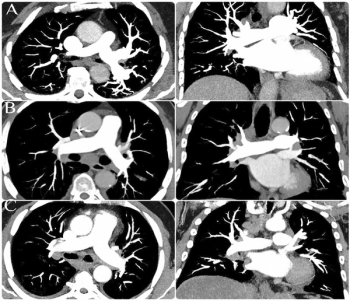
New research suggests the use of high-pitch photon-counting computed tomography (PCCT) facilitates similar image quality and attenuation in the pulmonary trunk at lower iodinated contrast media (ICM) dosing levels ranging from 35 to 60 ml.
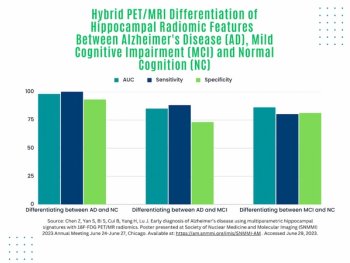
Employing a hybrid positron emission tomography (PET)/magnetic resonance imaging (MRI) model to assess predictive features of Alzheimer’s disease (AD), researchers noted a 100 percent sensitivity rate and a 93 percent sensitivity rate for distinguishing between AD and normal cognition, according to a study presented at the recent Society of Nuclear Medicine and Molecular Imaging (SNMMI) conference in Chicago.

In an interview at the recent Society of Nuclear Medicine and Molecular Imaging (SNMMI) conference in Chicago, Jeremie Calais, M.D., MSc discussed promising research findings for the use of the positron emission tomography (PET) imaging agent 89ZR-DFO-girentuximab for diagnosing clear cell renal cell carcinoma.
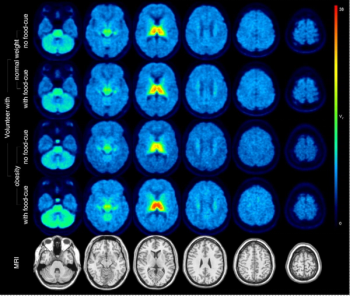
New research presented at the Society of Nuclear Medicine and Molecular Imaging (SNMMI) conference suggests that neuroreceptor differences in reactions to visual food cues between obese people and normal-weight individuals may improve the understanding of underlying mechanisms that contribute to obesity.

In a recent interview at the Society of Nuclear Medicine and Molecular Imaging (SNMMI) conference in Chicago, Phillip Kuo, M.D., Ph.D, F.A.C.R., discussed the potential impact of urinary activity with positron emission tomography (PET) radiopharmaceuticals, and new phase 3 study data that found low urinary activity with the use of the flotufolastat F 18 injectable agent in patients with prostate cancer.
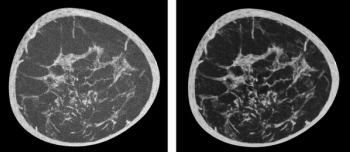
The artificial intelligence (AI) software facilitates high-resolution three-dimensional computed tomography (CT) images of the breast.
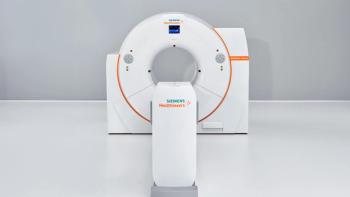
A next-generation positron emission tomography/computed tomography (PET/CT) system, Biograph Vision.X, reportedly offers enhanced spatial resolution and a time of flight of 178 picoseconds.

The research, which garnered “Abstract of the Year” honors at the Society of Nuclear Medicine and Molecular Imaging (SNMMI) conference in Chicago, demonstrates the potential of the targeted agent to significantly improve survival rates in AML.

In a lecture at the Society of Nuclear Medicine and Molecular Imaging (SNMMI) conference, Matthew F. Covington, M.D., discussed key findings from recent studies that emphasize the possible prognostic role of positron emission tomography (PET) in de-escalating treatment for breast cancer.
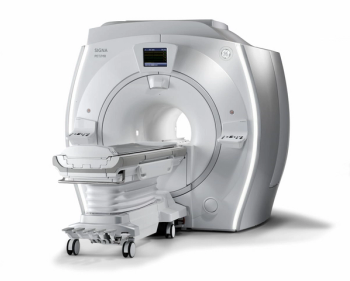
The newly launched Signa PET/MR Air device offers technological features that may bolster image quality and enhance diagnostic accuracy for diseases such as prostate cancer and Alzheimer’s disease.
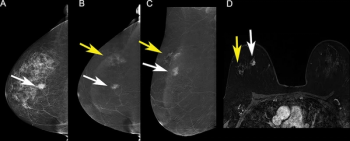
Ultravist is reportedly the first contrast agent to gain a specific indication for visualization of known or suspected lesions on contrast-enhanced mammography, which was recently recommended by the American College of Radiology as a supplemental imaging alternative to magnetic resonance imaging (MRI) in women with dense breasts at the age of 40 and other risk factors for breast cancer.
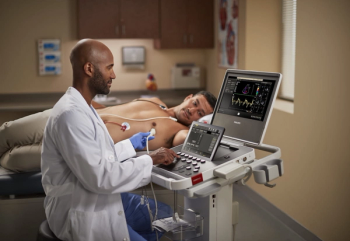
The new portable ultrasound device, which is being showcased at the American Society of Echocardiography (ASE) conference, offers enhanced cardiac imaging as well as shared transducer interoperability and workflows with existing EPIQ CVx and Affiniti CVx ultrasound systems.
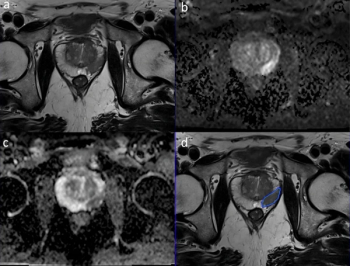
In multiple datasets from a study involving reviewed data from over 2,700 bi-parametric magnetic resonance imaging (MRI) scans, a deep neural network demonstrated area under the receiver operating characteristic (AUROC) scores ranging from 87 to 89 percent for the detection of clinically significant prostate cancer.
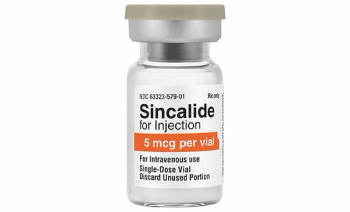
The injectable authorized generic reportedly facilitates gallbladder imaging as well as X-ray imaging of the intestinal tract.
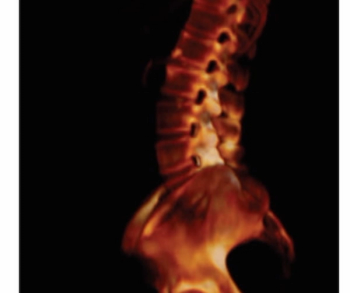
The InterView Fusion and InterView XP reportedly improve image quality for single-photon emission computed tomography (SPECT) and offer imaging tools specifically geared to common nuclear medicine studies ranging from bone imaging to cardiac assessment and lung imaging.
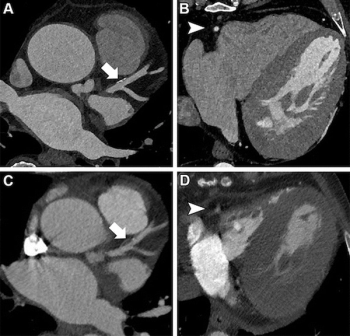
In a study cohort of patients undergoing pre-operative workup for transcatheter aortic valve replacement (TAVR), researchers found the use of photon-counting CT for ultra-high resolution coronary CT angiography had a 96 percent sensitivity rate and an 84 percent specificity rate for the detection of coronary artery disease (CAD).
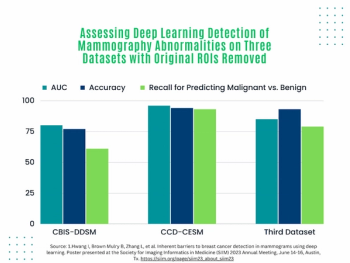
In multiple mammography datasets with the original radiologist-detected abnormality removed, deep learning detection of breast cancer had an average area under the curve (AUC) of 87 percent and an accuracy rate of 83 percent, according to research presented at the recent Society for Imaging Informatics in Medicine (SIIM) conference.

In a recent video interview from the Society for Imaging Informatics in Medicine (SIIM) conference, Ali Tejani, M.D., discussed pertinent insights on leveraging the value of adjunctive artificial intelligence (AI)-enabled triage software for computed tomography (CT) scans with radiology workflow improvements to achieve “clinically meaningful change” for patients with incidental pulmonary emboli findings.
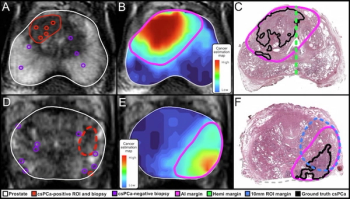
Combining multimodal imaging data and biopsy data, an artificial intelligence (AI) model provided enhanced sensitivity for defining prostate cancer tumor margins in comparison to conventional magnetic resonance imaging (MRI) assessments.

In a recent video interview, Stephen Rose, M.D., reviewed a variety of factors that can impact interpretation of breast imaging for women with breast implants and discussed recent research showing a 22 percent reduction in cancer detection rate for this population in comparison to women without breast implants.
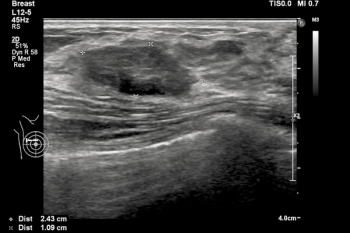
In a new study involving over 400,000 women, researchers found that ultrasound screening was performed for 95.3 percent of women with dense breasts but only 21.7 percent of women with a first-degree family history of breast cancer.

For patients initially diagnosed with non-metastatic, castration-resistant prostate cancer, pelvic lymph node involvement and five or more polymetastases detected with prostate-specific membrane antigen (PSMA)/ positron emission tomography (PET) are significantly associated with lower overall survival rates, according to recently presented research at the American Society of Clinical Oncology (ASCO) conference.
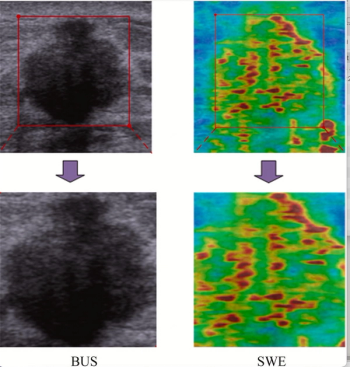
Researchers found that a deep convolutional neural network, incorporating B-mode ultrasound and shear wave elastography data, had nearly an 88 percent sensitivity rate for predicting neoadjuvant chemotherapy response in patients with breast cancer.
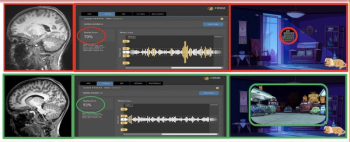
FIRMM-pix, a brain magnetic resonance imaging (MRI) software module recently launched at the International Society for Magnetic Resonance in Medicine (ISMRM) conference, reportedly employs visual biofeedback and gamification that coaches patients to stay still during brain MRI exams.
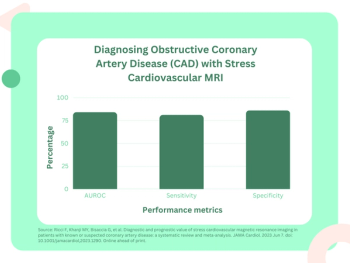
For the detection of obstructive coronary artery disease (CAD), stress cardiovascular magnetic resonance imaging (MRI) demonstrated a sensitivity rate of 81 percent and a specificity rate of 86 percent, according to a meta-analysis of 64 studies and data from 74,470 patients with stable chest pain.
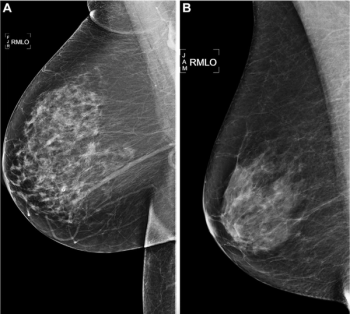
Five artificial intelligence (AI) algorithms for mammography assessment were better at predicting breast cancer risk over five years than the Breast Cancer Surveillance Consortium (BCSC) risk model, according to new retrospective research involving over 13,000 women.
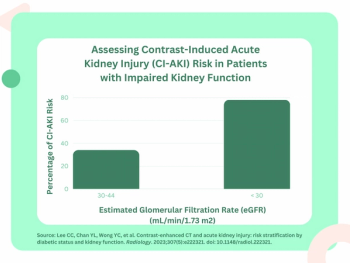
The use of contrast-enhanced computed tomography (CECT) was associated with more than double the risk of contrast-induced acute kidney injury (CI-AKI) in patients with diabetes and an estimated glomerular filtration rate (eGFR) less than 30 mL/min/1.73 m2 in comparison to the use of non-contrast CT in this population.
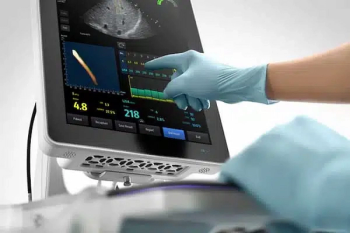
In order to facilitate optimal detection and assessment of liver fibrosis and steatosis, the newly launched Hepatus 6 Diagnostic Ultrasound System offers the capabilities of real-time two-dimensional ultrasound with visual transient elastography in one device.